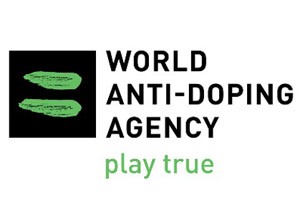Howman: “There are a whole lot of areas where there could be better things done, we can’t do them”
 Given the oft-mentioned battle to ensure the Olympic Games is as clean as possible, it seems hard to believe that, in this Olympic year, WADA has been forced to scale back some of its activities. But that’s what director general David Howman has said is happening, posing a danger to the battle to protect clean sport.
Given the oft-mentioned battle to ensure the Olympic Games is as clean as possible, it seems hard to believe that, in this Olympic year, WADA has been forced to scale back some of its activities. But that’s what director general David Howman has said is happening, posing a danger to the battle to protect clean sport.
“We have cut back,” he told the Globe and Mail. He said that the budget freeze “doesn’t help progress because we are asked to do a lot of things to make sure that we keep up with the cheats. And that requires innovation and it requires actions that we can put into place. We’ve just got to not go as fast as we would wish in some of those areas.”
One of the programmes impacted is an observer team that was scheduled to monitor drug testing and an outreach program in the athlete’s village.
WADA has an annual budget of approximately $26-million (U.S.), with half of that coming from the member countries, and the remainder being funded by the International Olympic Committee.
It argued for a two percent increase in contributions last autumn, but this was refused. WADA chairman John Fahey said at the time that it would put programs at risk. Howman told the board last November that the financial cost of testing for EPO meant that some labs had simply not been testing for it; despite it being a known problem in the sport, just 36 positive EPO cases came out of 285,000 anti-doping samples being collected.
“If you are not given a budget which maintains the pace of the cost of living, you fall behind,” Howman told the Globe and Mail. “And you have to then consider what goes by the by.”
A clear danger is that the bulk of the money in the anti-doping battle is on the side of the doping cheats, who can invest in new products in a bid to gain greater prizes and bigger contracts. Given that some sports people themselves earn more than $26-million, WADA’s total budget, the discrepancy is clear.
The newspaper states that WADA is considering hiring a fundraiser to ask for donations, and possibly to solicit corporate sponsorship from companies such as Nike.
However it is not clear how that would work, given that the agency needs to be completely independent, and several of Nike’s high profile athletes have been busted in the past for doping. Would backing by the company bring pressure on the agency when it came to examining, investigating or taking action against Nike athletes?
Howman is clear that the current situation is not ideal, and that things would be far better if WADA had more funding and greater power.
“There are a whole lot of areas where there could be better things done, we can’t do them,” he stated. “We’ve got a budget of $26-million and we don’t have any authority to tell governments what to do.”